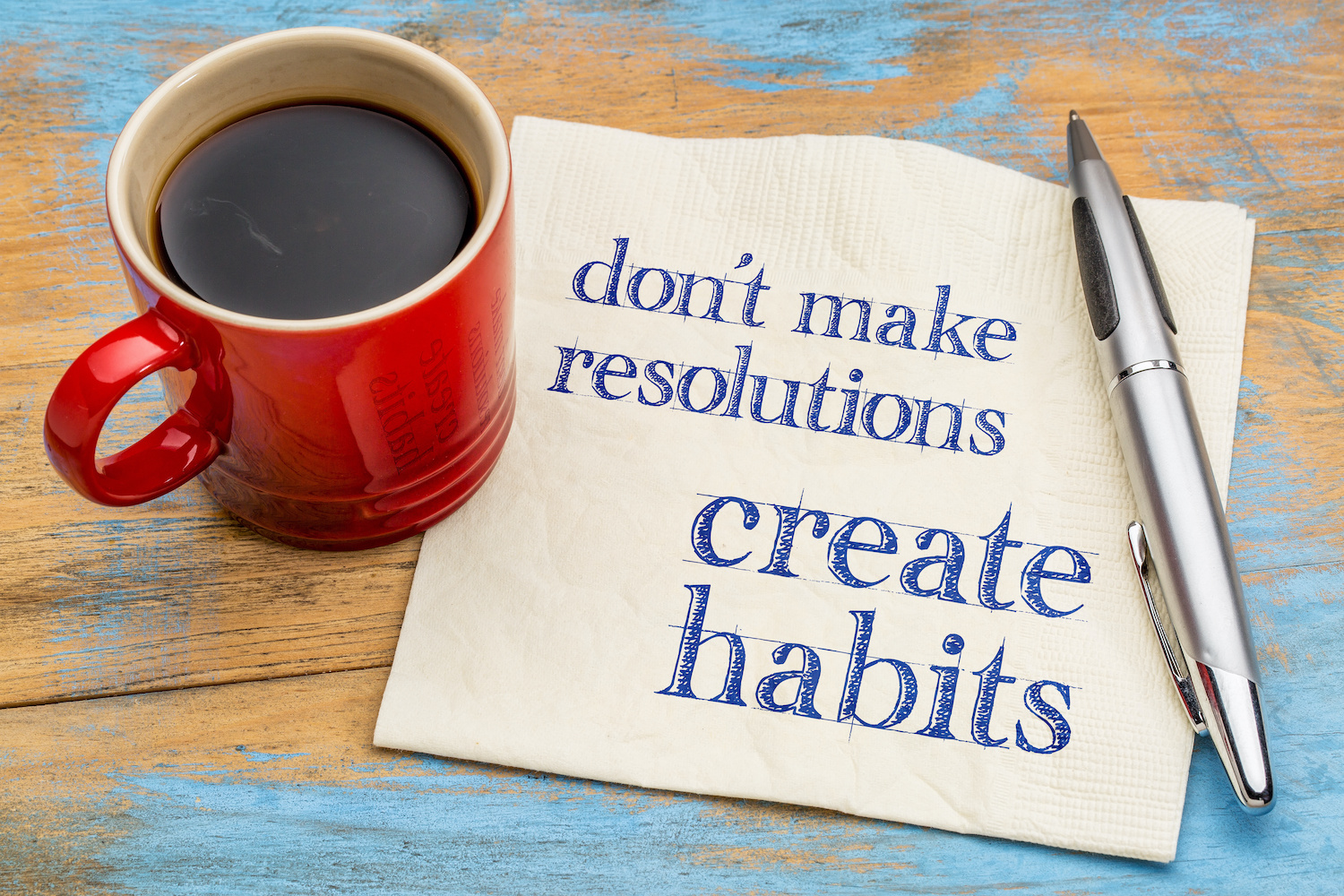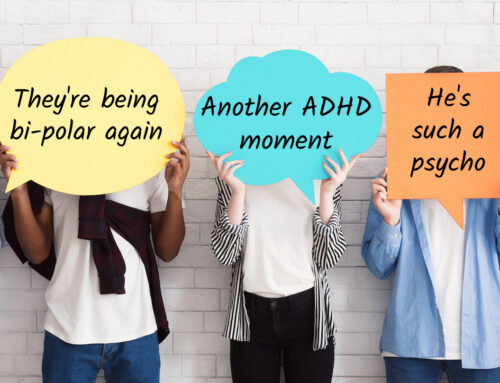By Dr. Maria Zimmitti
Every year, as the world wraps up yet another journey around the sun, we reflect intently on what was and what wasn’t. We declare who we want to be, what we want to do, and how we want to live in the upcoming year. Just like the wish we make as we blow out birthday candles, we set our intentions for the new year with a tenacious belief in our ability to reach our goals. We feel fire in our bellies.
Why then, do resolutions have such a short shelf life? How come one third of resolution-setters will drop their resolutions within the first month of the new year? If your resolutions feel like they’re falling by the wayside, there’s a delightfully simple (and science-backed) way for you to get them back on track. All you need to do is think smaller.
Ditch the goal-focused mentality.
A goal is a finish line. It’s the top of the mountain. When it comes to New Year’s resolutions, our goals are usually big, audacious, juicy, and exciting. The research shows that humans are very optimistic when we predict what our future-selves will be able to do.
Give this a try: close your eyes and imagine yourself reaching a goal. What do you immediately see?
For me, I see myself decked out in runner’s clothes, braving — no, excited for! — the cold morning air on my face as I go for a long run. I see myself reaching the top of a trail, breathing hard but not out of breath. In this image, I’m smiling while I run. This image is a far cry from who I am and what I’m capable of right here, right now.
What about your goal? Is it an image of a “you” that you intend to be but will take a lot of work to get to? If it is, that’s totally normal.
Motivation must be greater than or equal to the effort an action requires.
Here’s the golden rule: becoming proficient at something (be it running, or saving money, or listening better, meditating, or whatever your resolution is) requires that the effort it takes be equal to the motivation you have to do it. The harder the action is, the more motivation you need to muster to get yourself to perform it. If you, like me, are not a runner right now, then even a one-mile tour of the neighborhood demands an enormous amount of effort — and therefore requires a cruise-ship sized amount of motivation.
On New Year’s Eve, it’s easy to believe that our motivation to change ourselves and commit to bettering behaviors is bottomless — but as January rolls along, life gets in the way. Motivation is hard to find when you’re up early getting the kids ready for school, putting out a fire at work, nursing that headache that won’t go away, and juggling your errands.
Because big goals require big motivation, they can actually thwart our success. Instead, what if your goals were so simple that you hardly need motivation to complete them?
Here’s where habits come in.
A habit is an action that, through repetition, becomes second nature. In other words: a habit is effortless. In contrast to the flashy quality of a goal, habits are a “less is more” equation. The less noticeable it is, the more likely you are to stick with it.
The secret is to strip down your big resolutions until you find the version of them that takes as minimal an amount of effort as possible. Minimal effort takes minimal motivation.
If you wanted to go vegan, perhaps start by incorporating just one leaf of lettuce into each day’s meals. If you, like me, wanted to become a runner, start with getting around the block at whatever pace feels right just once each day. If you wanted to meditate, set the timer for just one minute. If you wanted to get straight A’s, aim to complete just one practice problem every evening.
If you set your resolution-dial to “itty-bitty” then you can budget for days when you can’t muster anything more than a miniscule amount of motivation. And that means you’re more likely to repeat the behavior, which is the key to forming a habit. Habits are the building blocks that get you to the big, enticing goal.
Take this trick to the homefront.
Which of your New Year’s resolutions can you re-evaluate? It can be fun and fruitful to sit together as partners or as a family and choose too-easy-to-fail versions of one another’s goals. Cheer one another on as you commit to the baby-steps.
It can be especially helpful to identify your goals and break them down into achievable steps with a therapist. Therapy can also help anyone struggling to build habits. You’ll learn tricks, like those learned in Cognitive Behavioral Therapy, to turn habit-building into a practiced skill.
Remember, when it comes to resolutions, stay small and you’ll stay strong.






